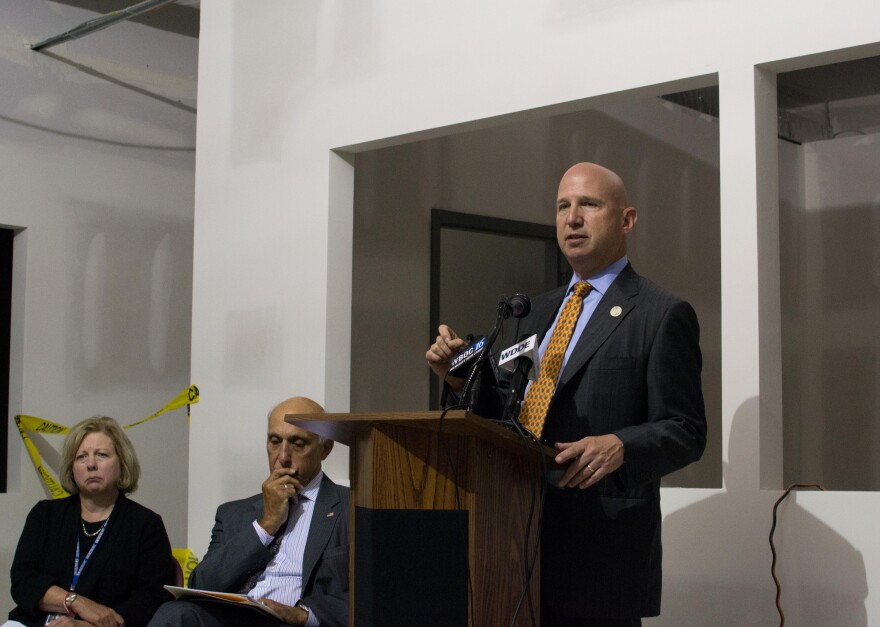Nearly $4.5 million in new money allocated in this year’s budget will soon help expand addiction treatment services statewide.
That cash is being used to double the number of halfway house beds available to Delawareans to 120. The state will also place more of an emphasis on treating younger addicts, increasing the number of spaces to 32 for those 18 to 25-years-old.
Gov. Jack Markell (D) and state officials outlined their plans Wednesday inside a currently under construction detox facility operated by Connections Community Support Programs, Inc . That center is set to open within one month in Harrington.
The facility will be able to house 16 people for medical withdrawal services, another 12 slots for those who just need stabilization and monitoring and space for another 100 people in an outpatient program.
Cathy McKay, president and CEO of Connections, says outpatient care is critical to cementing a solid foundation for addicts just exiting intense treatment and aren't yet connected with resources to help fend off a relapse.
"In many instances, they end up coming right back or worse. They end up overdosing or they end up incarcerated or some other outcome that isn't what we would hope for," McKay said.
Another new facility in New Castle County will provide identical services to the same amount of people.
Calling it a “gut-wrenching issue,” Markell pointed out that last year, 185 people died from suspected overdoses in 2014. As of July, state police say there have been 78 total suspected overdose deaths.
“We’ve got to make sure help is available and that people understand it’s available,” Markell said.
The governor announced the beginnings of such an initiative in his 2014 State of the State Address and expanded those details in his 2015 address.
He and others spoke of the importance of diminishing the stigma attached to addiction that can keep people from seeking treatment or those who might push others away out of misunderstanding.
“It affects everybody. It kills husbands and wives and moms and dads and brothers and sisters and sons and daughters,” said Markell. “It ends way too many lives before they have a chance to reach their potential.”
These efforts are part of a comprehensive approach the state has taken to treat those in the throes of addiction now, while also targeting younger Delawareans in educating them about the disease.
Starting this fall, public high school students will have to undergo drug and alcohol education before graduating.
Earlier this year, state lawmakers also allowed law enforcement to carry naloxone, a drug that can halt an opioid overdose long enough to get them medical treatment.
So far, only Middletown, New Castle County and Ocean View Police Departments have trained officers in using the medication. Nine lives have been saved through its use.
Family members and friends of addicts can also access naloxone through legislation passed in 2014.
State code also protects people from minor drug charges if they call 911 for medical help.
The expansion of state-funded addiction services will also help to reduce crime, officials say.
Department of Correction Commissioner Robert Coupe notes each inmate costs $36,000 a year to house in prison and that paying for these programs will quickly earn a return on those investments.
“We’re not going to be able to arrest our way out of this problem. When people suffer from addiction, we’ve got to connect them to treatment services,” Markell said.


